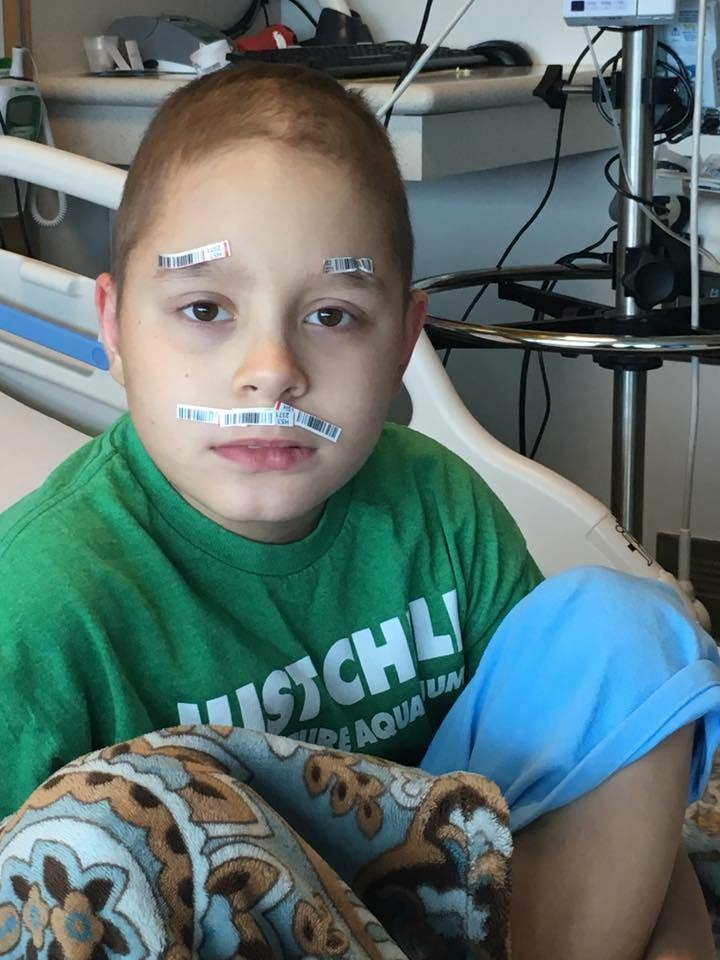
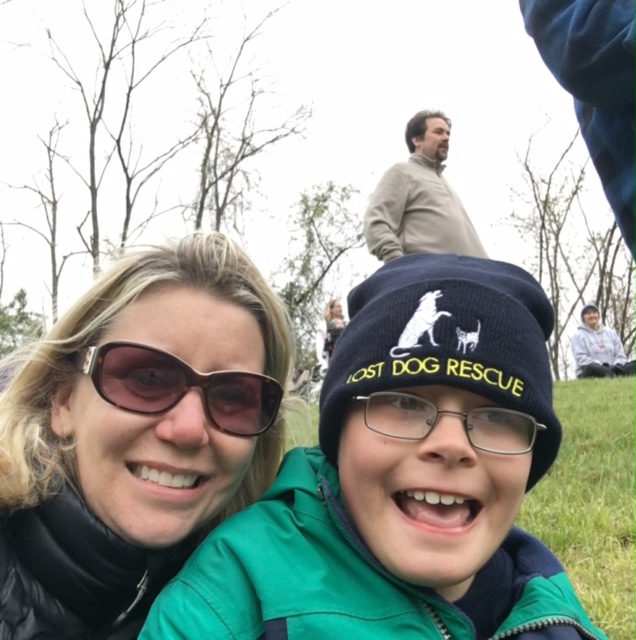
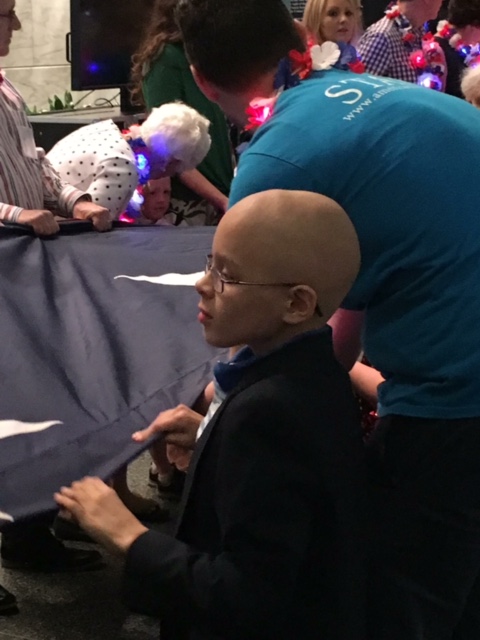
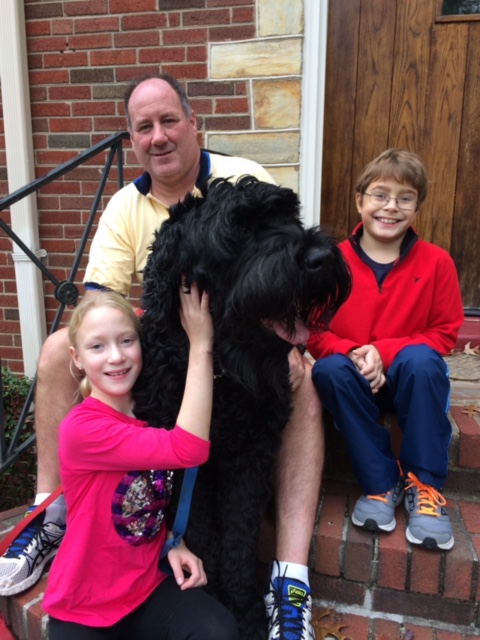
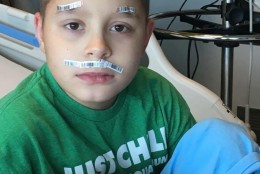
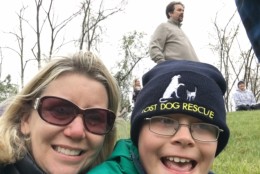
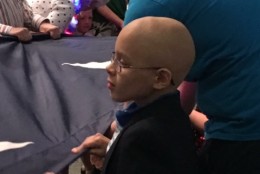
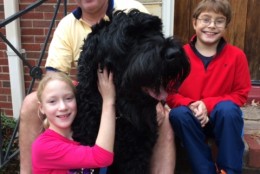
UPDATE: Good Shepherd Lutheran Church will host a bone marrow donor registration drive (“swab event”) on Sept. 11. Click here for more details.
WASHINGTON — The face grabs your attention: a young boy who is full of life, yet battling a dangerous disease.
In a video created by a caring neighbor, Jack Creedon, 11, looks directly into the camera, grins and says, “I am looking for a bone marrow transplant donor and it could be you!”
The Alexandria, Virginia boy was diagnosed last November with a high-risk strain of acute lymphoblastic leukemia. A chromosome disorder has left him resistant to treatment, and after consulting with doctors around the country, his parents have realized that a transplant is his best hope.
Finding the perfect match for a bone marrow transplant is always a tricky business, with the likeliest donors usually family members who share the same gene pool, meaning Jack’s parents and sister would be the first candidates tested.
But there is a problem. Jack was adopted from Russia when he was 18 months old, along with a little girl named Catherine who was 12 days older. They share a great sibling love now, but there is no blood link.
Their parents, Dan Creedon and Lesli Creedon, turned to the international bone marrow registry for help, hoping that one of its 30 million or so prospective donors would be the perfect fit.
“We sit, and wait and pray and we have been very proactive,” said Lesli Creedon as she sat in her office near the entrance to the National Zoo, surrounded by pictures of her kids.
The registry found only two potential donors in the entire world that would be a good match for Jack. One didn’t work out, and the family is waiting to see if the second will follow through. In the meantime, they have embarked on a campaign to raise awareness of the registry and convince more people to get tested and put their names on the donor list.
“I have discovered a whole new world of social media audiences,” said Lesli Creedon, reciting some of the organizations she has contacted in the D.C. area and abroad. They include other families that have adopted from Russia and Ukraine, Russian women abroad and even a local Russian Orthodox Church.
The D.C. church — St. John the Baptist — recently hosted a swabbing event. Just like the name sounds, it involves running a cotton swab inside the mouth to collect DNA samples used to match up donors and patients.
Lesli Creedon’s colleagues at the National Zoo, where she works in fundraising, recently took part in their own swabbing event. So did local employees of the Federal Aviation Administration, where Dan Creedon works. But anyone can do it from the comfort of their own home, using a kit provided by the donor group bethematch.org.
Doctors who work with kids like Jack say the international bone marrow registry is a godsend, enabling healthy adults to provide sick children with a desperately needed cure.
“There is a shortage of well-matched donors,” said Dr. Kirsten Williams, a blood and bone marrow transplant specialist with the Children’s National Health System.
Williams says finding a match for a child like Jack who was an international adoption is “an especially challenging situation,” adding the international registry is the main hope.
Any donor found through the registry would remain anonymous through the whole procedure, and may well live in another country. Williams says such long-distance donations happen often, with bone marrow extracted from the donor at a medical facility near his or her home and then quickly shipped to the recipient for transplantation the next day.
In essence, bone marrow transplantation is an original form of immunotherapy. Doctors use chemo and radiation to wipe out the immune system of the patient, and then rebuild it using the healthier cells from the transplanted marrow.
“We give them someone’s healthy cells that will go in their bones, set up shop and make all the new important components of their blood,” said Williams, adding that some of the transplanted white blood cells “can act as sophisticated military to find cancer cells and kill them.”
It’s a procedure that is performed rarely in kids. Lesli Creedon said Jack is aware of all that is involved, and understands just how important it is.
“He’s a fighter and he’s a trooper,” she said.
It didn’t take the long, complicated search for a donor match to convince her that her son is one in a million: a resilient, optimistic boy who has come through a lot of adversity in his 11 years.
Williams, who specializes in treating kids with high risk leukemia, said Jack was special but not alone. She said she thinks about her patients and the challenges they all face as they wait for donors.
“Actually, they are all one in a million kids,” Williams said.






